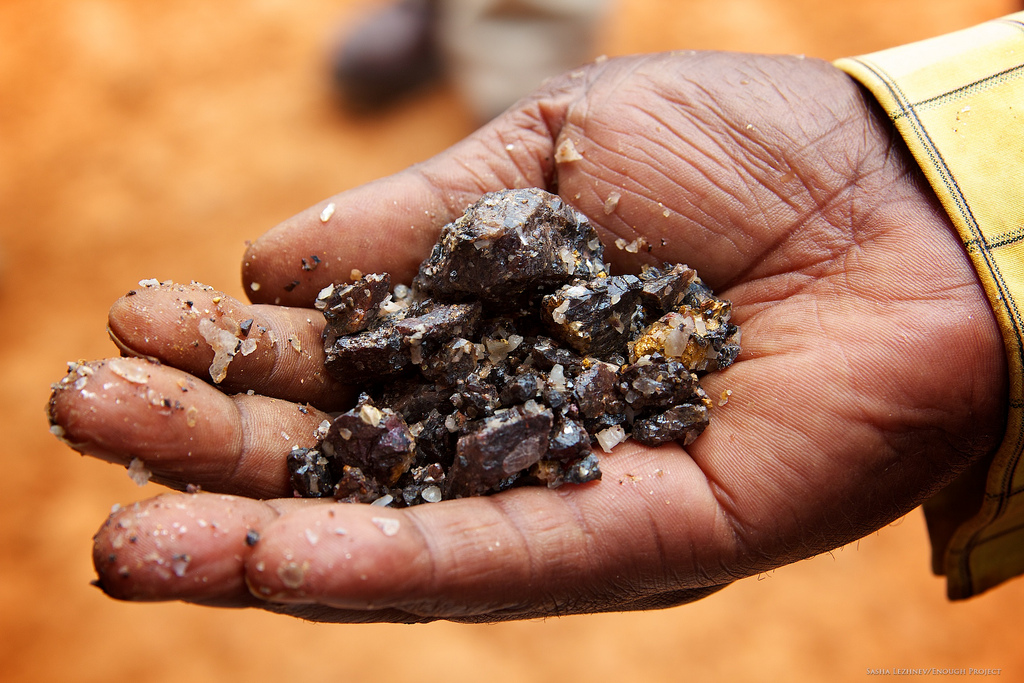
Continued pressure from citizen activists has finally started to crack Nintendo—the company that ranked dead last in the Enough Project’s 2012 company rankings on conflict minerals report released last month. Nevertheless, much more is needed to convince the world’s largest video-game console maker to move beyond issuing public statements and take meaningful action to clean up its supply chain.
The 2012 company rankings showed the significant progress electronics companies have made over the past two years toward sourcing conflict-free minerals used in their products and investing in conflict-free programs in eastern Congo. Consumer activism has undoubtedly played a role in moving these 24 companies ranked in the report to take action, but until now Nintendo seemed immune to public pressure, let alone participation in Enough’s surveys in 2010 and 2012. In recent weeks, building consumer pressure and outrage among Nintendo users seems to have finally pushed them over the edge.
Last week, Jenna Kunz, a high-school activist in California, started a Change.org petition, calling on Nintendo to take the initial steps to map out its supply chain and ensure it is not using conflict minerals sourced from eastern Congo in Nintendo products. After reading Enough’s company rankings report, Kunz was shocked that the world’s largest gaming company had apparently not made any attempt to stop the indirect funding of violence in eastern Congo.
“I was appalled that a company with this much influence did not put human needs above the production of their gaming consoles,” said Kunz.
Her petition, which as of today has 5,147 signatures, inspired the Australian-based anti-slavery group Walk Free to create their own petition that focuses on ending the slave-like working conditions associated with the conflict minerals trade. Walk Free activists threatened to protest the September 13 preview event for Nintendo’s new Wii U game console. Amid such growing consumer pressure, Nintendo was forced to respond.
"Nintendo outsources the manufacture and assembly of all Nintendo products to our production partners," a Nintendo spokesperson said last week to Polygon, a technology news blog. The spokesperson said the company established the Nintendo Corporate Social Responsibility Procurement Guidelines in 2008, which were revised in 2011, and disseminated to all production partners who have all agreed to comply with the guidelines. The Nintendo spokesperson added, "Further, we have obtained individual confirmation from each production partner that they agree not to use conflict minerals."
Although this demonstrates that Nintendo can be moved by consumer activism, the company’s statements on conflict minerals and corporate social responsibility guidelines are hollow and do not make up for a lack of action. It remains uncertain how Nintendo enforces these guidelines and how production partners guarantee the minerals they use are conflict-free. Additionally, the procurement guidelines do not seem to be publically available on the company’s website, which is critical for maintaining transparency moving forward.
“Unfortunately, the company's statement looks like a meaningless piece of paper without concrete steps behind it, because suppliers don't know where their minerals come from,” said Enough Project Senior Policy Analyst Sasha Lezhnev. “Guidelines are not supply chain investigations, audits, requirements to source from conflict-free smelters, or a plan to help certification. Nintendo should join the electronics industry audit program for conflict-free smelters, and require its suppliers to use only conflict-free smelters. Without that bare minimum, Nintendo is only putting a fig leaf over serious issues of war and slavery.”
In August, the Securities and Exchange Commission, or SEC, released long-awaited rules and regulations on how companies should trace and audit their supply chains regarding conflict minerals. To ensure that companies comply, consumer pressure in the form of more petitions, demonstrations, and conflict–free resolutions is needed to pressure the industry lagards like Nintendo and HTC to take initial steps forward on this issue, and to keep the leading companies—like HP, Intel, Apple, and Motorola—to continue setting industry standards. Hopefully, with more pressure from activists and Nintendo users, Nintendo will follow-up its vague statement about guidelines with steps to make conflict-free products a priority.
Photo: Tin ore in eastern Congo. (Sasha Lezhnev/Enough Project)

